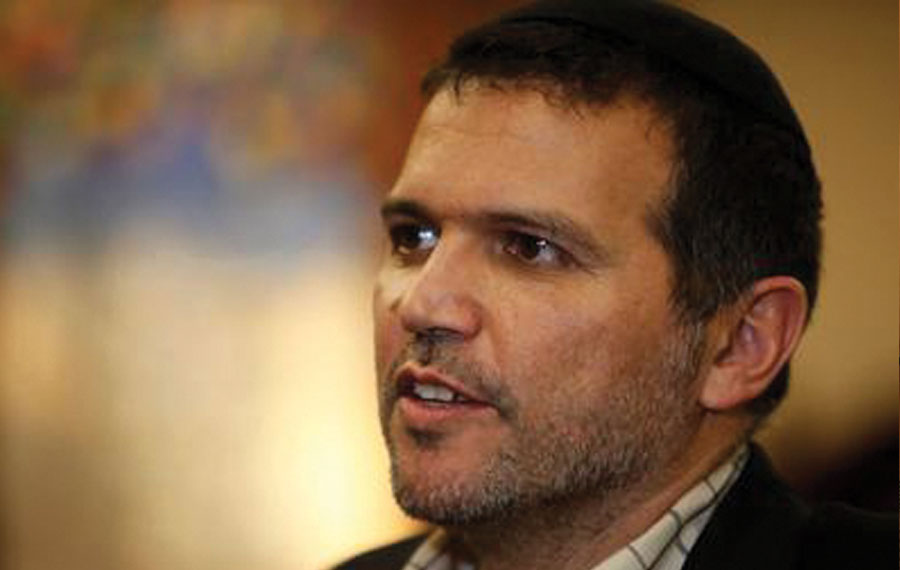 Yaacov Cohen
Yaacov Cohen Spirituality in entrepreneurship is one of the core tenets of Yaacov Cohen’s business model. As the CEO of harmon.ie, Cohen said, “There is no economic success without a deeper, soul-to-soul connection.”
One reason for this, the 53-year-old explained, is because you have to connect with diverse groups of people, including “geeks” such as engineers and developers who tend to be introverts; marketing people and VC managers who are more outgoing; finance people with rigid ways; and the customers themselves. “People care less about things like profit. They’re looking for self-realization before profits,” Cohen said. “They need to know they can trust you.”
Humanizing technology is the driving force behind harmon.ie — a platform that uses artifical intelligence and machine learning to divide documents and emails into topics, saving users hours of search time. The company is unique (or in industry jargon, a unicorn), in that its employees partly own it. In a radical move, Cohen and his 45 employees bought out the company from its Venture Capital investors in September 2018.
Armed with what Cohen terms an “exit obsession,” the VC investors pushed to sell harmon.ie. Cohen, who had been working at the company since 1994, wasn’t ready to sell. Nonetheless, he was at a crossroads. The risks were enormous but the potential rewards were too good to ignore. “We decided to give shares to our employees not because we’re altruistic, but because it made business sense,” he said. “Shared ownership equals shared responsibility for the success of the company.”
The model was democratized so employees on the lowest rung of the ladder received the same shares as Cohen. Cohen also wanted to keep the integrity of the company, its loyalty to its customers and have the freedom to innovate as he saw fit without being answerable to the moods of investors. He faced plenty of pushback from legal and financial advisors who told him he would have trouble raising funds again, and from banks that refused to finance the acquisition. The buyout also meant dipping into his pension and savings funds. “If I lost this battle, I was leaving the company,” Cohen said.
“There is no economic success without a deeper, soul-to-soul connection.”
Cohen credits his wife, Yael, in helping him make the decision. “Until then, I thought she was giving advice that suits us as a family,” he said (the couple has eight children, ages 11 to 26). “But through this process, I realized she was only giving advice for me to be happy in my career.”
Cohen met Yael while he was in the navy, where he volunteered for four years between 1988 and 1992. “My wife [married me] because of my uniform,” he said.
A French native, Cohen made aliyah at 18 and studied in a yeshiva before earning an engineering degree from the Technion in 1988. He then enlisted as a volunteer in the navy for four years, serving in the command and control systems on missile vessels. In 1994, he began working as a developer for harmon.ie, which then was called Mainsoft.
An observant Jew, religion has always played a huge role in Cohen’s life, although he’s loath to use the term “practice.” “I don’t feel like it’s practice,” he said. “It’s not like practicing a sport or hobby. It’s really about integrating my beliefs in day to day life.”





















 More news and opinions than at a Shabbat dinner, right in your inbox.
More news and opinions than at a Shabbat dinner, right in your inbox.